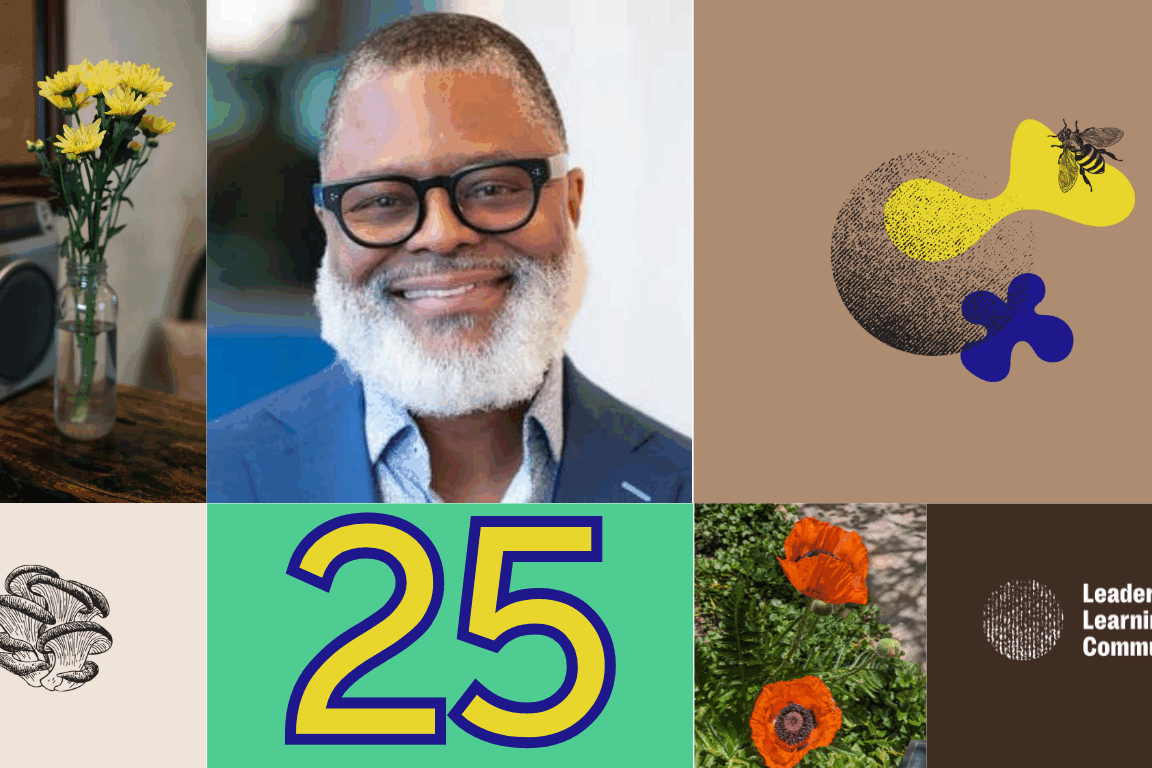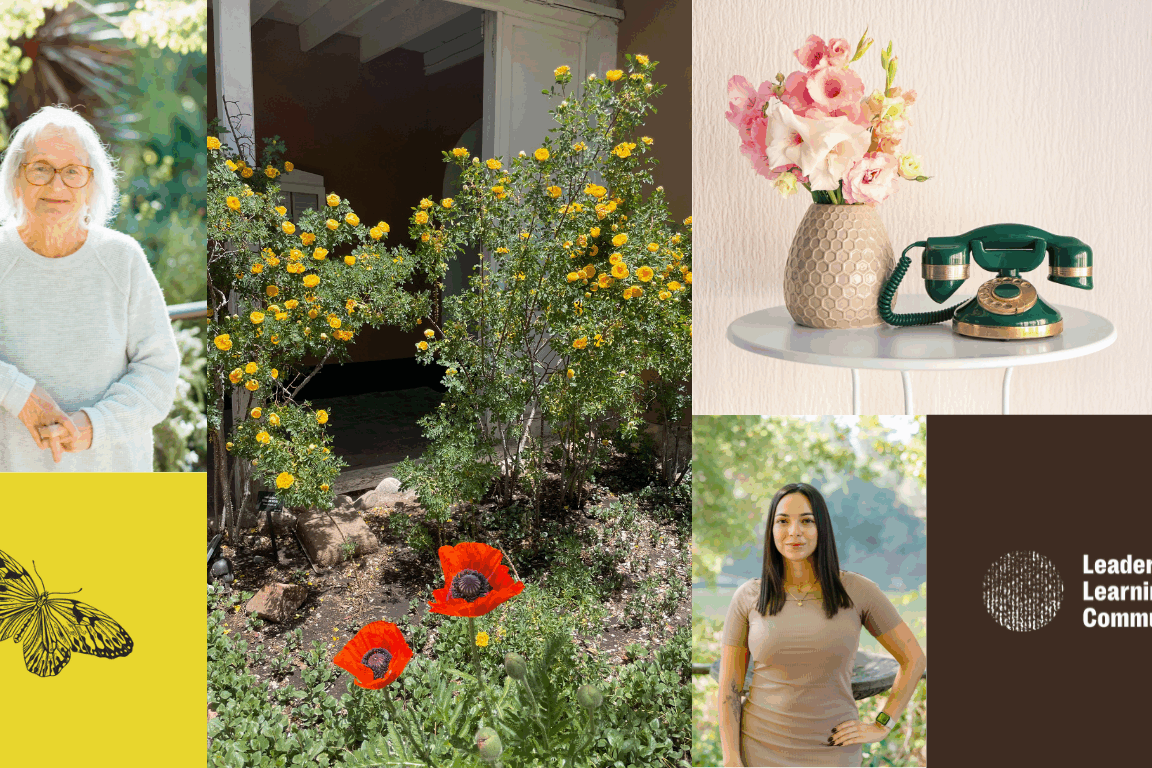To celebrate our 25th anniversary, LLC is hosting a special series of conversations with our friends and colleagues. These interviews honor our journey, lift up the essence of who we are, and reflect on the meaningful relationships and work that have shaped LLC over the past 25 years.

Alexandra Urdaneta: Please tell us a little bit about yourself and your involvement with LLC.
Krystal Portalatin-Gauthier: A little bit about myself, I’m an organizer, consultant, and coach. I find myself as kind of being in a support role for our social justice movements. I feel like I’m someone who’s really committed to our people and really value liberation and justice. I joined the LLC Advisory Board three years ago, drawn to an organization that truly is values-aligned and invested in building community.
LLC has consistently invited me to think about my leadership, and as an advisory board member, I’ve had the opportunity to both contribute to and benefit from its offerings. I deeply appreciate this reciprocal relationship, allowing me to give back while also taking advantage of the valuable work they do.
Alexandra Urdaneta: What have you learned from LLC?
Krystal Portalatin-Gauthier: I think the biggest thing that stands out to me when I think about this question is the idea of presence. LLC has really encouraged me to think more about being present. For example, the Zoom reminder( An invitation to breathe, take sip of beverage and it’s okay to be late). I remember when I first saw it, I was surprised. It’s an invitation to engage with each other differently, while a small example had a significant impact.
Leadership is incredibly challenging. As someone who has been in a leadership position, both within an organization and in various other capacities, I’ve noticed a shift in how I’ve been taught to view leadership. When I was younger, I was taught that “leaders are fixers” and they do things nobody else can. Much of my life has been spent wrestling with this, especially as an organizer, where we believe everyone is a leader and there’s so much good that can come from that belief.
However, once you actually step into a leadership role, the reality can be different. There’s a distinction between the idea of being a leader and the reality of being a leader. Leadership can be very challenging. You realize the constraints, the lack of time and space to develop people, versus the pressure of sustaining an organization. These can sometimes be at odds, and the pace of our work and the needs of our people can add even more pressure.
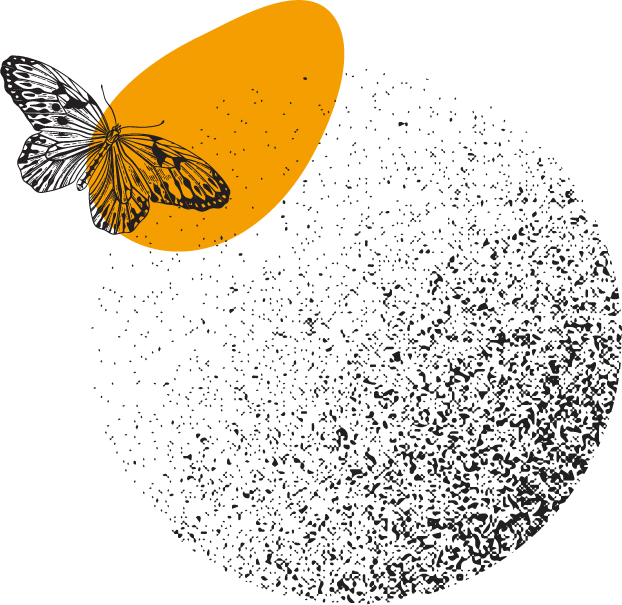
"LLC has been a reminder of how we can avoid leaning into the performance of leadership. Instead, it encourages us to think about leadership in a way that allows us to be truly present with what is, and to feel the possibility of it more."
- Krystal Portalatin-Gauthier
Krystal Portalatin-Gauthier: Leadership often gets twisted, whether we want it to or not, because we’re trying to adapt to the reality of the moment.
LLC has been a reminder of how we can avoid leaning into the performance of leadership. Instead, it encourages us to think about leadership in a way that allows us to be truly present with what is, and to feel the possibility of it more. This means releasing the pressure of being the “fixer” or the only person who knows what to do. So much of what the current moment asks of us is to consider the type of leadership we’re willing to bring and embody in this next period of time. What does that truly mean for our movements, what’s possible, and what is the work we can do?
I just feel like LLC has been a calming, more grounded space.
Alexandra Urdaneta: I love that answer. It really makes me think about the way we approach and understand leadership. I feel LLC is a place where leaders can explore, learn about leadership, and play, and it allows us to think about the type of leadership we need right now. I think now more than ever, collaboration is key to understanding the type of leadership we need.
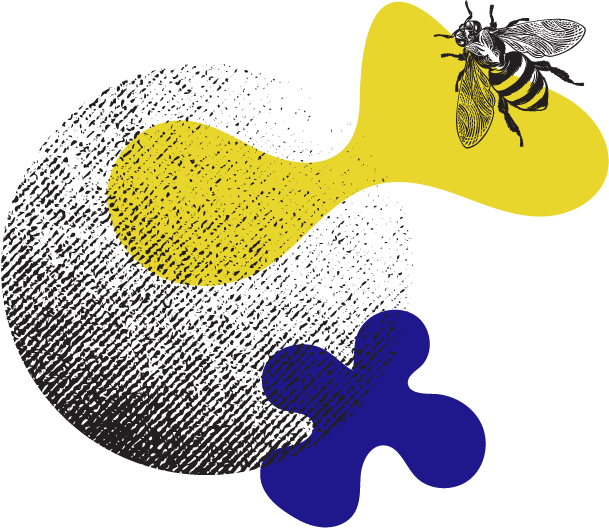
Alexandra Urdaneta: Can you share a moment, a program, or a relationship from your time in LLC that has stayed with you?
Krystal Portalatin-Gauthier: What comes to mind is the mending series. I think it just gave me a new perspective on conflict and meding. It’s not about fixing, but about pivoting. How do we stay in relationship? How do we call each other back to a relationship? How do we become more flexible?
Conflict is everywhere, and everyone experiences it. I’m always clear that I’m not a conflict mediator, but that’s not entirely true. I do help groups navigate conflict because it inevitably arises in the areas I support. For example, when we think about a new strategy, there’s conflict. When we consider organizational development, it will reveal some layer of conflict, perhaps a conflict between what was and what will be.
I think these sessions were just a reminder that there isn’t one solution, and it’s not about fixing. Instead, it’s about figuring out what is possible, what is the repair? What is the stitch?
Alexandra Urdaneta: It’s great to hear you reflect on your learnings. I really enjoyed that series as well. For me, it shifted the way I approach and think about conflict as well. Conflict can be a door, an opening, a place for opportunity. I find this perspective really grounding. It helps me reframe it in a way that makes me more comfortable.
"Liberatory leadership truly calls upon us to engage in our leadership roles with flexibility and presence, openly adapting to the needs of the time and space. This approach honors our core values and who we are."
- Krystal Portalatin-Gauthier
Alexandra Urdaneta: LLC talks about liberatory leadership. What does it mean to you, and how do you see it in action?
Krystal Portalatin-Gauthier: Liberatory leadership truly calls upon us to engage in our leadership roles with flexibility and presence, openly adapting to the needs of the time and space. This approach honors our core values and who we are.
I often reflect on the challenges we face, particularly with leaders in organizations. I believe one of the reasons that our social justice movements are struggling is due to the pressures on leaders that can create fear and rigidity in our actions (or lack of!). As a leader, it can be a challenge to take risks due to: funding concerns, because it deviates from the “norm”, scared of public disapproval, facing various external pressures, or the weight of the institution they represent.
Our movements desperately need us to be more open to what we know and don’t know. They need us to be more experimental and clear about the purpose of our leadership.
Ultimately, liberatory leadership prompts us to ask, how would we lead if we weren’t so afraid?
Alexandra Urdaneta: Yeah, what are the possibilities if we weren’t afraid? To me, liberatory leadership is an opportunity to show up, to learn, and lead with my core values at the center.
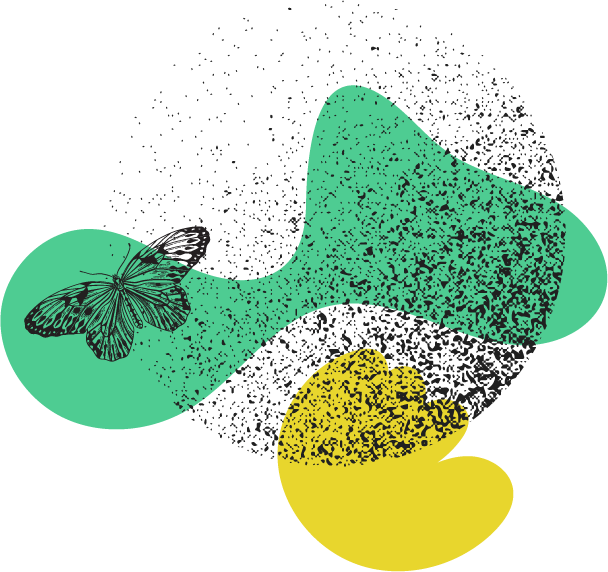
Alexandra Urdaneta: What hopes or dreams do you have for the next 25 years of LLC?
Krystal Portalatin-Gauthier: I truly hope more of our communities consistently engage with LLC, or at least with the work LLC produces. I believe the Liberatory Leadership framework is precisely what we need to embrace and practice in the coming period. I’d love to see more opportunities to be bold and explore what liberatory leadership truly looks like. I would like LLC to share case studies with the field to help people understand and practice liberatory leadership. I feel that a sustained practice of liberatory leadership could advance us further than we’ve ever been. I know that LLC has done this in the past, but I think continuing to convene cohorts of people dedicated to practicing liberatory leadership is essential.
Related Posts
February 23, 2026
Trusting in a claw machine
October 23, 2025
A Journey of Books: Celebrating 25 Years of LLC
October 23, 2025
Calls to Each Other: Duchesne Drew
September 26, 2025
